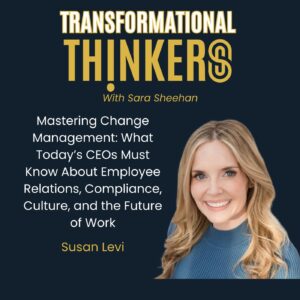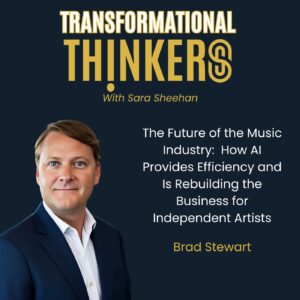Sara Sheehan’s guest in this episode is CEO of Diversity in Luxury, Luxury Weekly News Podcast and Elizabeth’s Cake Emporium, Elizabeth Solaru. Elizabeth is a luxury business consultant, author, and a world-renowned cake artist. Her clientele is high-end and royal now but she didn’t start in luxury, she started as a microbiologist and headhunter. Sara Sheehan learns all about how Elizabeth started her companies, found such wealthy clients, and the advice she offers in her new book, The LUXPreneur.
While working as a headhunter, Elizabeth relieved stress by reconnecting with her early love of baking and indulging in cake-making as a side hustle. When business in London collapsed in 2008, she decided to launch her luxury cake business instead of going back to headhunting. It was through cold-calling that she connected with a planner who worked for the late Queen Elizabeth, and the Queen became Elizabeth’s first high-end order. How Elizabeth built from that first order and scaled out into celebrities, other royals, and high-end brands, is her story of hard work, determination, and taking the lessons learned along the way to heart.
Sara Sheehan and Elizabeth Solaru discuss creative ways to scale businesses and why every entrepreneur needs a financial planner they trust deeply. Elizabeth shares the five pillars of building a business brand that she writes extensively about in her book: storytelling, perception, customer experience, having an incredible product, and vision. She speaks on the importance of diversity, specifically diversity in luxury, and how writing her book has prompted her to dream about something big to do with books in the future. Sara Sheehan’s talk with Elizabeth Solaru is a fascinating glimpse into how luxury brands work, how to reach them, and practical advice that business owners need to know.
About Elizabeth Solaru:
Elizabeth started her first multi-award winning business with a secondhand mixer and £40 in the bank. Over the years, through creativity and sheer hard work, she built it up into a world-renowned business brand called ELIZABETH’S CAKE EMPORIUM.
She serves Ultra High Networth Individuals (UHNWI) and royal families in a world of discretion, confidentiality, press embargos, and Non-Disclosure Agreements (NDAs).
Elizabeth has also collaborated with many luxury brands including Harrods, Oscar de la Renta, and Fendi. She has been called a pioneer in the industry, and her work has appeared in Vogue, Tatler, HELLO!, Martha Stewart, Wedluxe, and The Telegraph.
There have also been personal appearances on the BBC, Sky Living’s “Who’d be a Billionaire” and she has consulted on films such as Sony Columbia’s “My Best Friend’s Wedding.”
__
Contact Sara Sheehan | Sara Sheehan Consulting:
Contact Elizabeth Solaru:
- Website: ElizabethSolaru.com
- Website: LuxuryBusinessEmporium.com
- Elizabeth Solaru on LinkedIn
- “The LUXPreneur: How to start and build a successful luxury brand” by Elizabeth Solaru
Hosted by Simplecast, an AdsWizz company. See pcm.adswizz.com for information about our collection and use of personal data for advertising.


